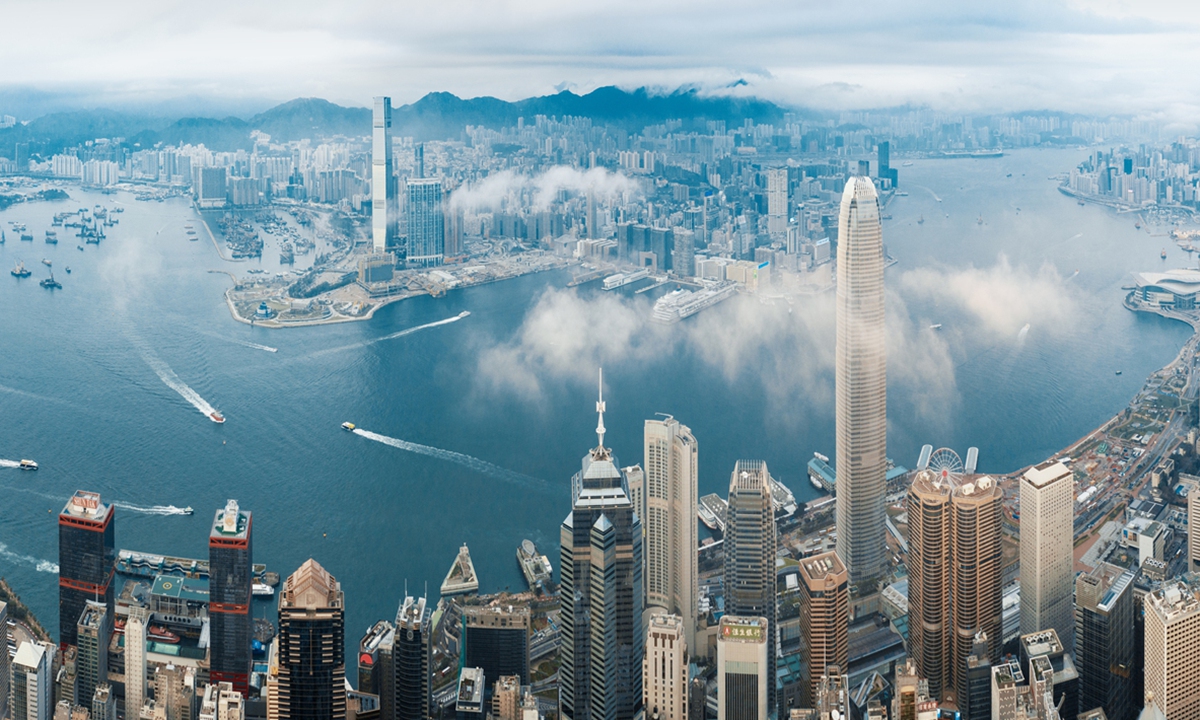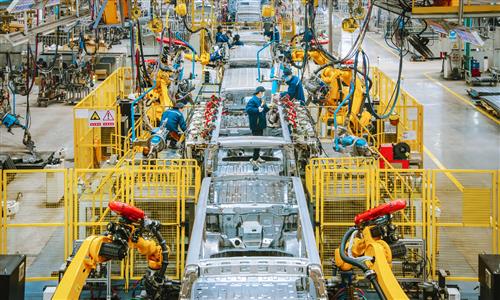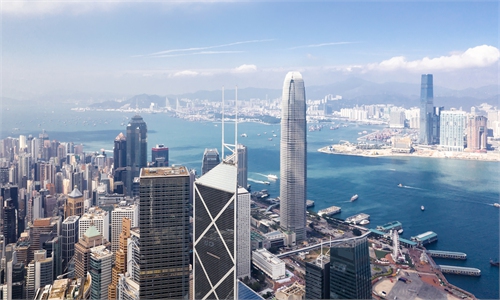
The view of Hong Kong Photo: VCG
In the 27 years since Hong Kong's return to the motherland, trade between the Chinese mainland and Hong Kong Special Administrative Region (HKSAR) has grown 3.8 times, reaching 2.03 trillion yuan ($279 billion) in 2023, China Media Group reported on Thursday.
Official data showed that in the first five months of this year, trade between the mainland and Hong Kong reached 851.26 billion yuan, up by 14.9 percent year-on-year. This upward trend underscores the deepening economic connections and integration between Hong Kong and the mainland, analysts said.
Chinese experts noted that HKSAR's close ties with the mainland since the mainland's reform and opening-up have solidified its economic growth and bolstered its status as an international financial hub, noting the city's sustained prosperity further hinges on regional integration and innovative coordination within the Guangdong-Hong Kong-Macao Greater Bay Area (GBA) amid the country's continued drive to promote the high-quality development.
HKSAR officials said at the start of June that the city is expected to sustain its growth for the rest of 2024 with favorable factors, with GDP growth for 2024 set to reach 2.5 to 3.5 percent. The city's GDP grew 2.7 percent in the first quarter of this year, the fifth consecutive quarter of growth, according to official data.
Hong Kong's economy achieved a steady recovery in 2024, backed by the GBA strategy with the area's advantages in linking the large Chinese mainland market combined with a series of facilitating policies for regional connectivity and integration, Cong Yi, a professor at the Tianjin School of Administration told the Global Times on Thursday.
However, "the city's economic growth has been centered on the trade and finance sectors for decades, bolstered by its strengths in international connectivity and position as an offshore yuan financial market," Cong said.
Cong emphasized the need for further efforts in upgrading Hong Kong's industrial structure and elevating regional cooperation with innovation-oriented cities such as Shenzhen, South China's Guangdong Province, to bolster its higher-level openness, enhance innovation capabilities, and achieve high-quality development.
John Lee, chief executive of the HKSAR, said on Tuesday that the SAR government's future focus will be on comprehensive economic development and improving livelihoods, leveraging its strengths to foster new growth drivers.
Lee highlighted Hong Kong's ample opportunities in initiatives such as attracting talent and business relocation, which have demonstrated promising outcomes. Furthermore, the SAR Government is intensifying its efforts to boost the economy by attracting key enterprises and implementing various revitalization measures.
Amid the mainland's economic expansion, opening-up and global economic shifts, Hong Kong should explore growth potential in emerging innovative sectors beyond its traditional reliance on financial services, Cong said, adding that "it is crucial for the city to closely integrate with the mainland and serve as a key node linking into the vast Southeast Asia region."
The GBA development strategy accelerates the free flow and integration of various economic factors within the region, which will significantly drive regional integration and facilitate high-quality development for both Hong Kong and the entire area, Cong said.



